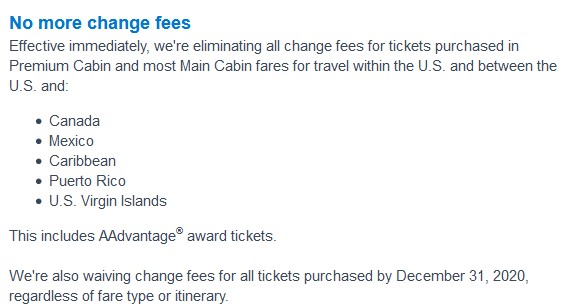Salary inequity has been a contentious issue ever since Zarg the Chieftain gave Thirg a larger shield than Krell, even though the latter had killed more Dalegians in the last battle. Here’s a more modern take on the thing:
The longstanding BBC sitcom [Mrs. Brown’s Boys] has reportedly lost Damien McKiernan and Gary Hollywood, who play couple Dino and Rory.
It’s reported they quit after discovering they earn less than other cast members.
I’ve said before that what people are paid really depends on how much they contribute to the success of the enterprise. Where this starts skirting close to the reef is the question: who decides what the relative contribution is worth? Of course, the standard answer is “the boss” (whether a department head or the CEO, whichever is more relevant), but of course whenever you leave the decision to a single person, there will inevitably be some bias during the process — hence the formation of pay grades, compensation committees and the like.
Even that’s not perfect. In the Army, for example, a pay grade applies to everyone in that classification — but being the Army (i.e. a government department), the output of the individuals is subordinate to the rank: all sergeant majors of equal service length get the same pay, even though some sergeant majors (I’m looking at you, Sar-Major Wilkinson, you disgusting fat fuck) aren’t worth the dirt it would take to cover their useless corpses in a shallow grave. (Not that I ever thought about that, of course).
I also quiver with rage when I hear stories of VPs complaining that a top salesman’s commission results in his being paid more than a VP. (My simple response: “Financially speaking, he’s an earner while you’re just overhead.”)
I was never in a position to do this, but if I were running a company, I think I’d post all salaries on the bulletin board so that every employee could see their relative value to the company — but nobody would be allowed to question the merits or non- thereof where managers and such were concerned, because having a clerk quibble about his manager earning twice his salary would inevitably show that the manager’s value to the company was in fact four times a clerk’s, so in fact the clerk was being over-paid. (And if it wasn’t… draw your own conclusions.)
The onus of explanation and justification, therefore, would devolve to senior managers (or even the CEO), because it’s that important an issue, even if for no other reason than employee morale.
Certainly, this would eliminate 90% of the female whining about pay disparity, especially when disparities are explained in terms of seniority, hours worked and results: with the corollary that if there is indeed unjustified disparity, the imbalance would be fixed toot sweet. No reasonable person can argue against this.
Let’s be honest: the general reason that salaries are kept secret is for management to hide funny business and/or favoritism. Working in a Great Big Company’s IT department as a computer operator, I once discovered that a boss’s secretary was earning more, a lot more, than I was as a senior “oppie”. I couldn’t do anything about it because strictly speaking, I wasn’t supposed to have access to the data (but when you’re printing salary checks, it’s kinda difficult to hide the numbers from the guy printing them — which, by the way, is why the salary print runs could only be performed by very senior employees, who could be counted on to be responsible and keep their mouths shut, and I was only allowed to do that because the manager in charge was in hospital having his gall bladder removed). Nevertheless, after a little digging I discovered that the reason for the seccy’s whopping salary was that she’d been regularly bonking her boss for the previous five years (at least, having discovered the affair, it was the only logical explanation). There was nothing I could do about it, of course — I sure as hell wasn’t going to tell anyone — but it did rankle somewhat. Having the salaries posted on the board would probably have taken care of Mrs. Mattressworthy’s over-payment.
What salary transparency also does, of course, is enable people to see what people at their rank in other companies are earning — another reason that salary data is concealed — although I think that in the long run, it too would be more beneficial from a total business perspective: if you’re paying more than the industry average for a particular position, telling people that does a sterling job of keeping one’s own employees happy whilst attracting others to joining the company. Healthy competition, and all that.
When it comes to showbiz, however, I have no clue. I have spoken before about the value of top-level people such as DJ Chris Evans over in Britishland, but that’s a relatively easy call to make with regard to salaries: the higher the ratings, the higher the pay (see above for the “earner” aphorism), and in fact since Evans left his job at BBC2, the show’s ratings have dropped massively under his replacement, proving the point.
But individual actors within a show? No idea — it may well be a subjective decision from the producer (with all the problems that I explained above), or maybe it can be driven by audience response. (I remember a story about Ron Howard’s salary while he was acting in Happy Days ; apparently, his canny agent had put a clause in Ron’s contract that he, as the principal character, would always be paid one dollar more than any of the other actors in the show. So when Henry Winkler’s Fonzie became very popular and his salary rocketed, so did Howard’s.) But deciding whether Ross was worth more to the show than Phoebe in Friends ? Fuggeddabahdit.
Which is what the brouhaha in Mrs. Brown’s Boys seems to be about: minor characters (always low on the totem pole) are generally open to abuses such as lower salaries, getting written out of the story, and so on. Sad, but it’s the way of the world.





